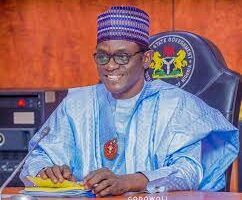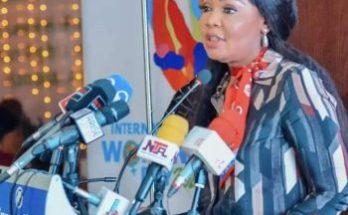They were among the best individuals who once served the country. Not only were they noted for their exploits in public service, they were at their best while they served. SUNNY IDACHABA in this piece wonders where they could be now.
Onyema Ugochukwu
Chief Onyema Ugochukwu is an economist, journalist, politician and pioneer chairman of Niger Delta Development Commission (NDDC) at its creation in 2000 by former President Olusegun Obasanjo. Ugochukwu had prior to this time served as the senior special adviser on communication to President Obasanjo.
Upon his graduation from the University of Nigeria, Nsukka, he worked briefly with the Central Bank of Nigeria (CBN), but abandoned it for journalism. That was when he joined the Business Times group as economic analyst at inception. The flagship later blossomed into becoming the most influential financial newspaper in Nigeria before it went into distress. While there, he rose to become its editor.
Later in 1983, he joined the London-based West Africa magazine and became its editor in chief. Here, he wrote extensively on development issues and provided a better understanding of the African debt crisis. He eventually returned to Nigeria to become the editor in chief of the Daily Times of Nigeria and was subsequently appointed to its board as the executive director, manpower and development. He later retired from active conventional journalism in 1994 but remained active as a media consultant for a long time.
In the course of his career as a journalist, he had met and interacted with numerous statesmen like former British prime minister, Margaret Thatcher; Nelson Mandela, Jamaican prime minister P. J. Patterson; former French president, Jacques Chirac; Ibrahim Babangida and many others. It’s on record that he had also presented papers on African economic and political development at various forums including Oxford University and others.
What later gave him a major turning point was that with Nigeria’s return to democracy in 1998, this Abia state-born technocrat became the director of publicity at the ‘Obasanjo for President’ campaign organisation where he contributed immensely to the election of the former president. Thereafter, he was rewarded with the appointment of senior special assistant on national orientation and public affairs to the president. In this capacity, he spearheaded a national rebirth campaign aimed at instilling patriotic virtues into the citizen’s psyche ravaged by years of political instability, military rule and corruption. It was on this platform that he launched what was referred to as ‘The Nigerian Declaration of Human Responsibilities’ which declares in part that, “This character on human responsibilities seeks to bring freedom and responsibility into a better balance, highlight and increase awareness of the obligation which we owe each other and to our nation.”
Ugochukwu as NDDC chairman helped to articulate the president’s vision of sustainable development in the Niger Delta region as he developed a policy that encouraged partnership among stakeholders in the Niger Delta communities and their tribal chiefs, including youth militia, oil companies and their executives, the government, non-governmental organisations, and international organisations like the United Nations Development Programme (UNDP) and the World Bank.
During his tenure, NDDC focused mainly on economic revival and prosperity, environmental rehabilitation and the development of social and physical infrastructure. When he left office as NDDC chief, he contested the governorship election of Abia in 2008 on the platform of the Peoples Democratic Party (PDP), but eventually lost the bid to Theodore Orji after an appeal court in Port Harcourt declared that Orji of Uzor Kalu-led Peoples Progressive Alliance (PPA) actually won that election.
Since then, not much has been heard about him again.
Ibrahim Ogohi
Available records show that Admiral Ibrahim Ogohi is the first Nigerian naval officer who attained the rank of full admiral to be appointed as the Chief of Defence Staff CDS (a four-star general) which also entitled his official car with the same insignia. Before then, that position was occupied solely by the army until former President Olusegun Obasanjo, in 1999, appointed him in that capacity. This Kogi state-born ex-naval officer enlisted into the Nigeria Navy at the Military School Kaduna in 1962, and passed through all military trainings, attended courses both at home and abroad until he rose to the peak of his profession.
Ogohi, according to reports, was being prepared for involuntary retirement from the navy during the military era, but providence kept him as one of the most senior military officers who never tasted political office all through the years the military held sway in the country. That was what paid off for him. This is because Obasanjo, on coming to power in 1999, retired all military officers who had tasted any political appointment. His reason was that he wanted to work with only officers who would be apolitical hence the choice of Ogohi.
It was therefore a litmus test for him as CDS on how to coordinate the military to show loyalty to the new democratic era in the country. He did and throughout his stewardship, the military officers and men learnt the rudiment of the military working under a democratic government for the first time after 1983 in total loyalty.
Ogohi left office in June 2003 for retirement having completed his mandatory 35 years in service. However, since he pulled out, not much have been heard about him any more; not even any kind of alliance with a political party as is the case with some of his colleagues. Information about him is sketchy as he has never been seen in any public event since 2003 nor did he make any public comment that can attract the attention of the press since then.
Ben Iroha
Benedict Iroha popularly known on the pitch as Ben Iroha is a former professional football player who played either as a left-back or left midfield. As an international footballer, he started his career first in Nigeria, scoring the first ever goal in the newly professional Nigerian league for Iwuanyanwu Nationale in 1990, which eventually gave the Club a win in the league that year. It is on record that it was Clemens Westerhorf, the then coach of the Super Eagles, that converted him into playing left back otherwise he was originally a midfielder.
Although his international football career was not reckoned with, he however he had a brief stint with San Jose in 1996 and ended up playing in the inaugural MLS match against D.C United and is credited with the League’s first-ever assist. It is on record that the next season, he was traded to D.C. United where he won the league title but was dropped to comply with salary restrictions. He however later entered negotiations with the team in order to re-sign his contract, but that move did not materialise as he was called up to the World Cup squad for Nigeria that year.
Iroha had played for a Spanish side Elche CF in 1997 and later moved to Watford in December 1998, playing ten games for the Hertfordshire side, but was forced to the sidelines before he retired in March 2000. After his retirement, he returned to the US to coach FC Dallas, a youth side. He was also an assistant with the Nigerian U-17 team that won the 2007 FIFA U-17 World Cup and head coach of Nigeria’s Dolphins FC. He was reportedly with Heartland of Owerri, but it’s not clear where he could be presently




